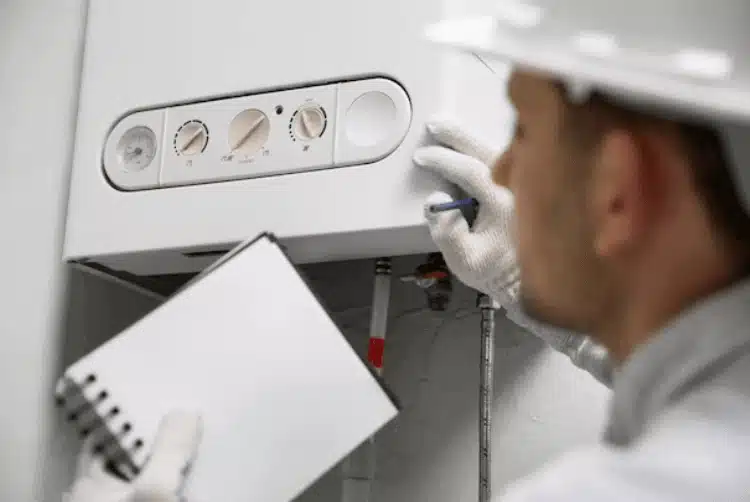Water is an essential resource that we rely on for everyday activities like drinking, cooking, and bathing.
However, occasionally we may encounter a foul odor coming from our water, reminiscent of rotten eggs.
This can be a disconcerting experience, but understanding the causes and potential solutions can help you deal with this unpleasant situation.
1-Bacterial Growth: The most common cause of water smells like rotten eggs is the presence of certain types of bacteria in the water heater.
These bacteria produce hydrogen sulfide gas, which has the characteristic odor of rotten eggs.
2-Sediment Buildup: Over time, sediment and minerals can accumulate at the bottom of the water heater tank.
When bacteria interact with these sediments, it can result in the production of hydrogen sulfide gas, causing the unpleasant smell.
3-Anode Rod Reaction: Water heaters are equipped with anode rods that help prevent corrosion.
Sometimes, these rods can react with sulfate in the water, leading to the formation of hydrogen sulfide gas and the associated odor.
4-Warm Environment: Warm temperatures in the water heater create an ideal environment for bacteria to thrive.
If the water heater is not used regularly, the stagnant water can become a breeding ground for odor-producing bacteria.
5-Reaction with Sulfates: If your water source has high levels of sulfates, the combination of these sulfates with the anode rod or other elements can lead to the release of hydrogen sulfide gas and the smell.
To address water smells like rotten eggs , it’s recommended to first flush the water heater to remove sediment buildup.
If the issue persists, replacing the anode rod with one made of a different material, like aluminum or zinc, might help.
In severe cases, professional plumbing assistance might be necessary to thoroughly clean the tank and disinfect the system to eliminate the bacteria causing the odor.
To confirm if the smell is coming from your water source, it’s important to perform a simple test.
Fill a glass with water and take it to a different location, away from the water source.
If the smell persists, it indicates that the issue is with your water rather than the plumbing in your house.
While the sulfur smell in your water may be off-putting, it is not usually dangerous to health.
However, the presence of sulfur bacteria in your water can indicate other issues with your water supply.
For example, high levels of sulfur may indicate the presence of other harmful contaminants, such as iron or manganese.
It’s important to investigate the issue further to ensure the safety of your water.
If you notice a water smells like rotten eggs from your hot water, the issue may be related to your water heater.
Addressing this problem requires a slightly different approach.
1-Flush the Water Heater: Sediment buildup can contribute to the sulfur smell.
Periodically, drain and flush the water heater to remove accumulated sediment.
This can help reduce the environment in which odor-causing bacteria thrive.
2-Replace the Anode Rod: If the anode rod in your water heater is reacting with sulfates, consider replacing it with a different type of anode rod, such as aluminum or zinc.
This can help prevent the production of hydrogen sulfide gas and the associated odor.
3-Disinfect with Hydrogen Peroxide: To eliminate bacteria causing the smell, try disinfecting the water heater with hydrogen peroxide.
Turn off the heater, pour a mixture of hydrogen peroxide and water into the tank, let it sit for a few hours, and then flush the tank thoroughly.
4-Temperature Adjustment: Higher water temperatures can encourage the growth of odor-producing bacteria.
Lower the temperature setting on your water heater to make the environment less conducive for bacterial growth.
5-Regular Use: If your water heater is not used frequently, the stagnant water can lead to bacterial growth.
Regularly using hot water helps keep the water fresh and reduces the likelihood of bacterial buildup.
Remember that persistent sulfur smells may require professional plumbing assistance.
If the issue persists despite trying these tips, it’s advisable to consult a plumbing expert to identify and address the root cause of the odor.
In some cases, a more comprehensive solution like a whole-house water filter treatment system may be necessary.
These systems can effectively remove sulfur and other contaminants from your water, ensuring that you have clean, odor-free water throughout your home
To eliminate the water smells like rotten eggs from your hot water heater, you can try a few different methods.
One effective approach is to replace the anode rod with an aluminum or zinc alloy rod, which is less likely to react with sulfur compounds.
Additionally, increasing the water heater temperature to 160 degrees Fahrenheit for a short period can help destroy the sulfur bacteria and reduce the smell.
Another option to consider is using a water softener if your water smells like rotten eggs .
Water softeners can help remove certain minerals from your water that contribute to the odor, improving the overall quality of your hot water.
The odor itself is not typically harmful and does not pose any immediate health risks.
However, it can indicate the presence of other contaminants in the water that may be harmful if consumed in high concentrations.
For example, if the rotten egg smell is caused by sulfur bacteria, there may be other bacteria or pathogens present that could cause waterborne illnesses.
It’s important to determine if your water is safe to drink and take appropriate measures to address the odor.
If you’re concerned about the safety of your water, there are a few steps you can take to determine if it’s safe to drink.
First, consider the source of your water.
If you have municipal water, you can contact your water supplier to request a water quality report.
This report will provide information on the levels of various contaminants in your water.
If you have well water, you can have it tested by a certified laboratory that specializes in water testing.
They can analyze a sample of your water and provide a detailed report on its quality.
If you’re experiencing a sulfur smell from your tap water, it’s essential to take prompt action to address the issue.
To troubleshoot the problem with your water system, start by checking for any visible signs of contamination in your water.
Additionally, inspecting your plumbing fixtures and pipes for corrosion or sulfur deposits can provide clues about the source of the smell.
Using a water filter to improve the taste and smell of your tap water
Installing a water filter specifically designed to remove sulfur compounds can be an effective solution for improving the taste and smell of your tap water.
These filters are available in different types, including activated carbon and reverse osmosis filters.
If the sulfur smell persists despite taking measures to address it, there may be a problem with your water heater tank.
In this case, contacting a professional plumber like Al Rooter Plumbing Company can help diagnose and fix the issues with your water heating system.

The presence of sulfur in your cold water can be attributed to several factors.
It could be due to the buildup of hydrogen sulfide gas in the plumbing system or the contaminated water supply.
Regularly flushing your plumbing system and cleaning your fixtures can help reduce the sulfur smell.
For a more long-term solution, installing a water filtration system specifically designed to remove sulfur compounds can effectively address the problem of a sulfur smell in your cold water.
Consult a professional plumber or water treatment specialist to determine the most suitable filtration system for your needs.
While working on resolving the water smells like rotten eggs issue, it’s crucial to maintain proper hygiene with a water source that smells like sulfur.
Use mild antibacterial soaps and cleaners to ensure cleanliness and minimize any potential risks associated with the sulfur smell.
To prevent future smells from your water heater, it’s important to perform regular maintenance and follow best practices for water heater care.
Some tips for maintaining your water heater include:
If you have well water and are experiencing a sulfur smell, there are specific considerations and methods for addressing the issue.
Well water is often more susceptible to sulfur smells due to the presence of sulfur compounds in the ground.
To effectively treat well water smells like rotten eggs, it’s crucial to identify the source of the sulfur and implement appropriate solutions.
There are several common causes of water smells like rotten eggs in well.
One possibility is the presence of sulfur bacteria, similar to the cause in municipal water sources.
Another cause could be the presence of hydrogen sulfide gas or sulfide minerals in the well itself.
These compounds can enter the water through natural processes, such as the breakdown of organic matter, or as a result of human activities, such as mining or agricultural runoff.
It’s important to determine the exact cause to implement the most effective treatment methods.
One common problem with well water is that water smells like rotten eggs , caused by the presence of hydrogen sulfide gas.
This can make the water unpleasant to use and drink.
Treating well water for the rotten egg smell typically involves using an activated carbon filter, which can effectively remove the hydrogen sulfide from the water.
Additionally, shock chlorination can be used to disinfect the water and eliminate any sulfur bacteria that may be causing the smell.
Regular maintenance and testing of the well water can help prevent and address this issue.
If your water smells like rotten eggs , it may indicate a problem with your plumbing system.
In such cases, you can contact Al Rooter Plumbing Company, a reliable and efficient plumbing service provider.
With years of experience in the industry, Al Rooter Plumbing Company offers exceptional water filtration services to ensure that your water is safe and odor-free.
Don’t hesitate to reach out to Al Rooter Plumbing Company for any plumbing issues, including water smells like rotten eggs.

